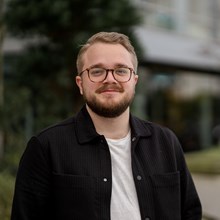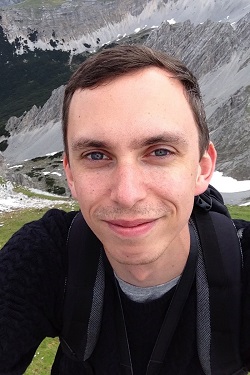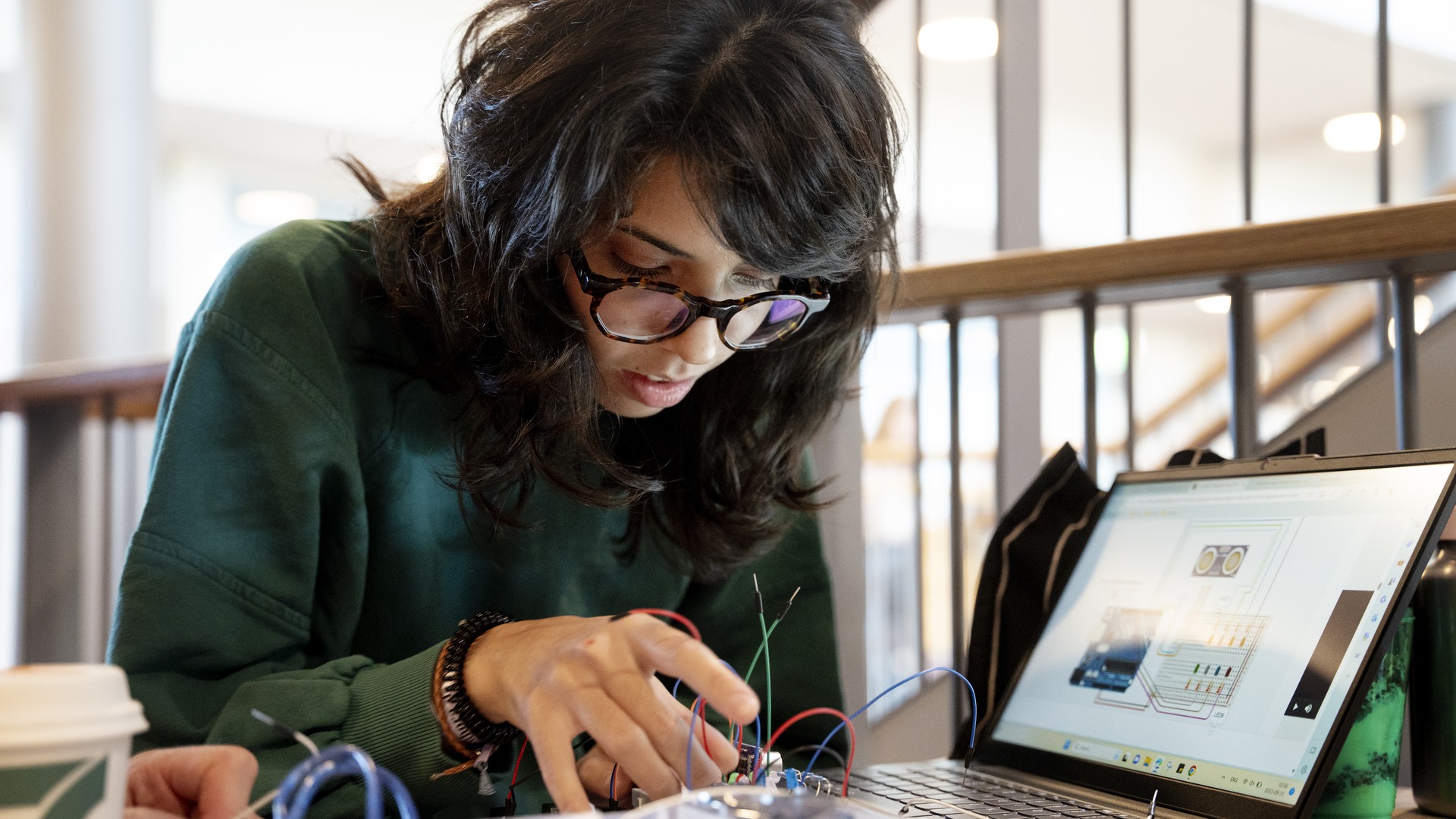I liked the intensity of the assignments and fact that they so closely resembled real work life situations
Alexander Liderås, 25, is a recent graduate from the Media Technology: Strategic Media Development master’s programme. He recently started to work as a project manager for Tietoevry in Malmö, a career opportunity that came to him via another alum of the programme.
“After I graduated from the media production and process design bachelor’s programme here at Malmö University, I felt that my skillsets were a bit scattered,” explains Alexander.
“So I decided that I needed to specialise and focus on digitalisation from a business development perspective. I found out about this master’s programme, and it felt like a match made in heaven.”
Comfortable as project leader
Alexander, who grew up in the Swedish town of Västerås and moved to Malmö to study, describes himself as someone who is comfortable in a project leader role. He loves problem solving and wants to find flexible work with lots of room for creativity.
”The programme gave me a good understanding of many different aspects of my field, and I felt well-prepared to jump right into my professional career. This feeling came from the fact that I had already done a great deal of ‘real work’ throughout the course of the programme, so I understood what would be expected from me.”
One thing Alexander liked about the master’s programme was the flexibility in the assignments. Through dialogue with the teachers, he was able to help shape the assignments, which felt extra motivating. Overall, the courses include a lot of group work, something which Alexander enjoyed.
Enjoyed the data sprints
In the programme courses, Alexander liked the data sprint assignments the most. During these two-week group assignments, he and the other student in his group would receive a data set from one of the programme’s external collaboration partners. They would then be asked to visualise the data to help solve a client’s real-life problem and then prepare and pitch their solutions to the partner companies.
“I liked the intensity of the assignments and fact that the data sprints so closely resembled real work life situations. Once we got the data set on the first day, we would need to have an idea by the end of that day and then just keep on working under time pressure. By the end of the first week, we would start preparing for how we would present our case to the customer.”
Beyond the media industry
According to Alexander, the skills he and the other students learned in the programme are by no means useful only in the media, advertising and marketing industries.
“This programme suits people like me, who want to work behind the scenes, come up with cool ideas and then put those ideas into this world. If you want to lead projects and work strategically with digital content, you should consider applying to this programme.”












